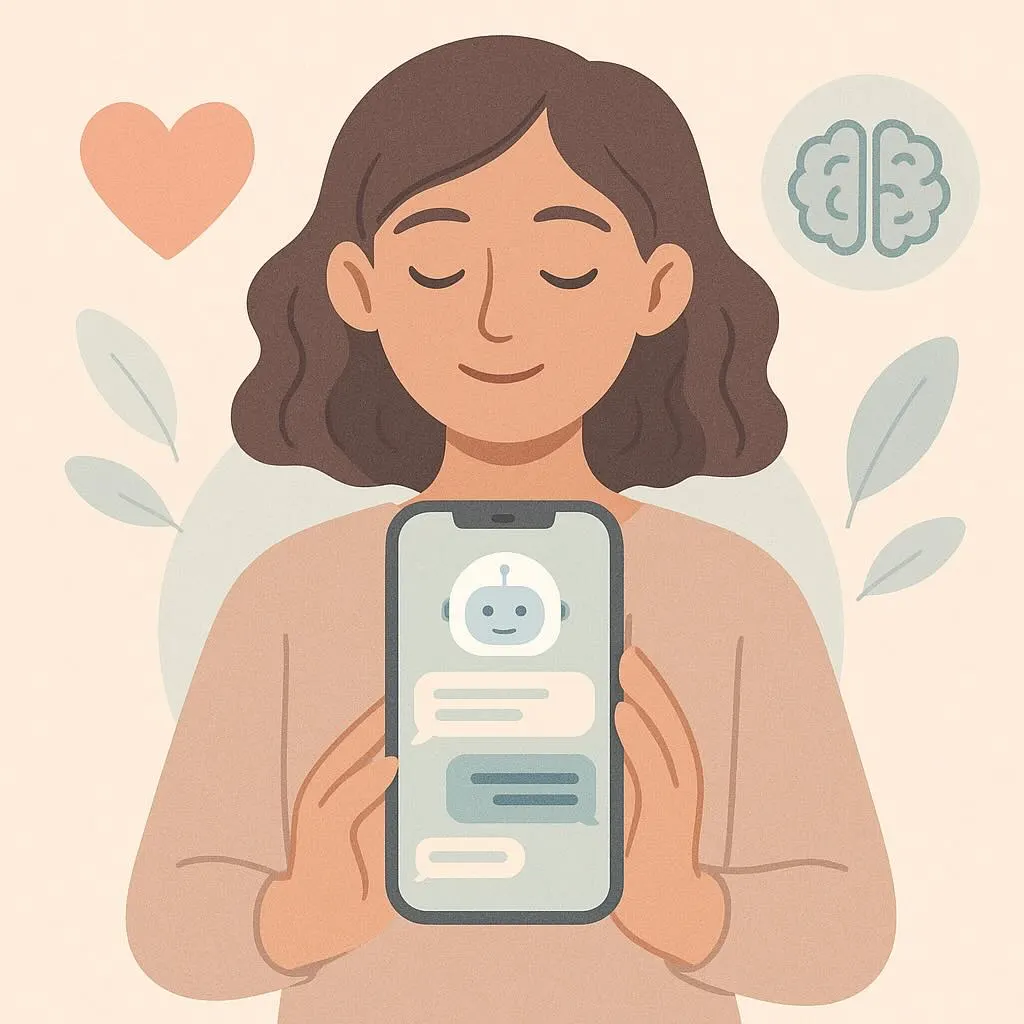As mental health challenges surge globally, traditional care systems strain under costs, waitlists, and accessibility barriers AI-powered companions like Noah AI promise scalable, evidence-based support—but can they truly serve as therapy? This article examines the promise and limitations of AI therapy, drawing on recent research and Noah AI’s clinical approach.
The Case for AI Therapy
1. Proven Symptom Reduction
A 2024 meta-analysis of 18 randomized controlled trials found AI-based chatbots significantly alleviate depression (Hedge’s g = –0.26) and anxiety (g = –0.19) within eight weeks of use. These effects rival low-intensity human interventions, positioning AI as a cost-effective first step for mild-to-moderate cases.
2. Enhanced Self-Care and Literacy
In a 2025 trial of a topic-based chatbot, users showed marked improvements in self-care behaviors (Cohen’s d = 0.36) and mental health literacy (p = .02) after ten days of guided sessions. While gains waned by one-month follow-up, the study underscored AI’s role in preventive, educational interventions.
3. Scalability and Accessibility
Noah AI delivers on-demand support 24/7, free from geographical or scheduling constraints. By automating routine check-ins and leveraging CBT techniques, AI companions can democratize mental health care—especially in underserved and rural areas where provider shortages are acute.
4. Hybrid Models Match Human Care
A digital program combining AI delivery with human oversight achieved anxiety reductions (GAD-7 decrease of 7.4; d = 1.6) on par with face-to-face CBT, while reducing clinician time by up to eightfold. This synergy highlights AI’s potential to amplify clinical capacity without sacrificing outcomes.
How Noah AI Elevates AI Therapy
Noah AI integrates evidence-based techniques (CBT, DBT, mindfulness) with advanced affective computing. By analyzing sentiment shifts, voice tone, and journaling inputs, Noah AI delivers:
- Empathy-Driven Interaction: Adaptive responses calibrated to emotional cues, fostering genuine connection comparable to human conversation.
- Personalized Pathways: Tailored daily prompts, coping strategies, and progress tracking based on individual goals and usage patterns.
- Crisis Protocols: Immediate redirection to helplines or emergency services for high-risk signals (suicidality, psychosis), ensuring safety.
- Data Privacy & Compliance: SOC 2 certification, end-to-end encryption, and user-controlled data sharing—never used to train external models.
Important Limitations: Complementing, Not Replacing, Human Care
While Noah AI excels in proactive resilience building and low-intensity support, it remains an adjunct to licensed therapy:
Ethical and Equity Considerations
- Algorithmic Bias: AI models trained on non-diverse datasets risk misinterpreting cultural expressions or underdiagnosing underrepresented groups.
- Data Privacy: Centralized storage of sensitive mental health logs demands robust security; Noah AI’s protocols mitigate but cannot eliminate all risk.
- Autonomy & Engagement: Users may feel compelled to follow AI-generated exercises; transparent explanations of logic are essential to preserve autonomy.
The Road Ahead: A Hybrid Future
AI therapy is not a panacea, yet it offers:
- Bridging Access Gaps: Immediate, stigma-free entry points for those deterred by cost or geography.
- Augmenting Care Delivery: Automating routine tasks, freeing clinicians to focus on high-acuity cases.
- Enabling Preventive Outreach: Early detection of mood shifts and personalized nudges to avert crises.
Noah AI’s vision embraces hybrid models—seamless handoffs between digital coaching and human expertise. By coupling sophisticated empathy modeling with clinician collaboration, AI can extend the reach of mental health services without compromising quality.
Disclaimer: Noah AI is not a replacement for professional medical advice, diagnosis, or treatment. For emergencies, please contact qualified health providers or emergency services.
References:
1. PubMed PMID 38631422.
2. J Med Internet Res. 2025 Apr 30;27:e70436.
3. Can J Psychiatry. 2019;64(7):456–464.
4. SSRN. 2025 Mar.
5. Front Psychiatry. 2025 Feb 4;16:1494355.
6. medRxiv. 2024.07.17.24310551v2.







